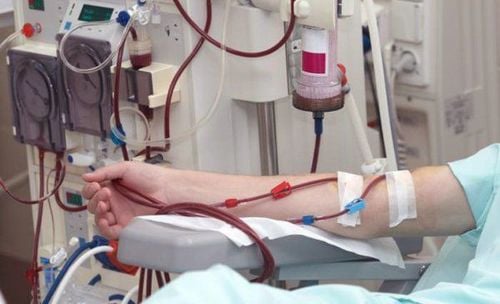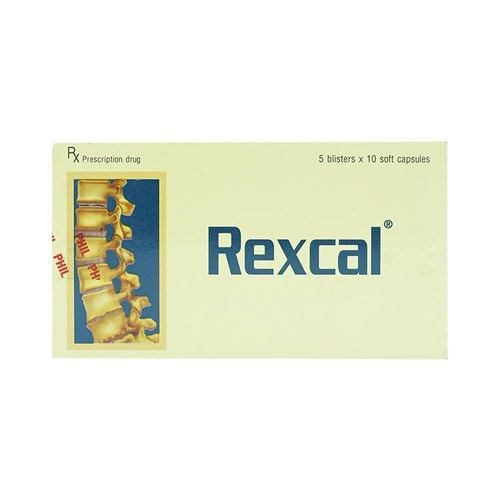This is an automatically translated article.
The article is professionally consulted by the Head of Department of Medical Examination & Internal Medicine - Vinmec Ha Long International General Hospital.
Among kidney diseases, chronic kidney failure is a serious disease with many complications, with a high risk of death in the end stage of the disease. The disease can affect both men and women, but is more common in women. So clinically, how to recognize signs of kidney failure? What is the difference between chronic kidney disease in men and women?
1. Chronic kidney failure
Renal failure is a state of impaired function of the kidneys that is mainly expressed in the excretory function. The patient was diagnosed with chronic renal failure when the condition persisted for at least 3 consecutive months.
Like hypertension, chronic kidney failure is like a silent killer. The disease is often detected at a late stage, when kidney function has been greatly reduced.
Clinically, chronic kidney disease usually progresses through 5 stages:
Stage 1: Kidney damage, glomerular filtration rate is still within normal index; Stage 2: The kidneys are slightly damaged, the glomerular filtration rate begins to decrease slightly, usually from 60-89 ml/min; Stage 3: The glomerular filtration rate is moderately reduced (from 30-59 ml/min), anemia is present, bone and joint diseases such as back pain and knee fatigue may appear; Stage 4: The glomerular filtration rate is severely reduced (from 15-29 ml/min); Stage 5: End stage renal failure, the glomerular filtration rate falls below 15ml/min, the kidneys are almost inoperable, the patient must undergo extra-renal dialysis or kidney transplant;
2. Differences in CKD in Men and Women

Tần suất mắc bệnh ở nữ giới cao hơn so với nam giới
2.1 Epidemiological factors Renal failure is a disease that can occur in both sexes, but clinical practice has shown that the frequency of the disease is higher in women than in men. On the contrary, after having the disease, in men, chronic kidney failure progresses faster than in women.
In addition to gender, chronic kidney disease is also affected by age, race, genetic factors and many other objective factors such as diet, lifestyle, smoking habits, etc.
2.2 About clinical manifestations General clinical manifestations:
There is a change in the urinary tract: frequent urination, little urine, maybe foamy or different color; Fatigue, nausea, vomiting; Dizziness, decreased or inability to concentrate; Edema (usually leg and face edema), possibly itching, ammonia breath; Back pain in the flank area. Clinical differences of chronic kidney disease in women and men:
Kidney failure in women: Very afraid of cold even when the weather is at normal temperature compared to everyday; Gaining a lot of weight even after having a scientific and nutritious diet and exercising regularly; Excessive hair loss: hair loss is not related to dry, weak or healthy hair factors, not related to time and weather or the use of chemicals; Eyes dark circles, edematous even with a very reasonable rest regime, eat and sleep on time, get enough sleep; There are expressions of frigidity with married life, early perimenopause syndrome accompanied by signs of night sweats, psycho-physiological changes...; In special cases, women with kidney failure, during pregnancy can affect the development of the fetus, may increase the risk of preeclampsia for the mother. Kidney failure in men: Frequent cold hands and feet even in hot weather accompanied by shivering, dizziness, sometimes manifested as asthma; Urinating a lot at night, usually more than 2 times in one night, returns to normal during the day. Note to avoid confusion with cases of frequent urination at night due to drinking a lot of water; Back pain, knee fatigue occurs earlier in people who sit for a long time, sedentary leading to fatigue, affecting quality of life and work; Dizziness, frequent tinnitus, photophobia accompanied by mouth sores due to a weakened immune system; Physiological decline, which can lead to physiological weakness, affect sperm quality or even cause male infertility.

Khuynh hướng điều trị ở nam giới thiên về lọc máu, làm cầu nối FAV và ghép thận
2.3 Treatment trends Same as kidney disease but different treatment trends in both sexes:
Men are more prone to dialysis, FAV bridging and kidney transplantation; Women usually donate more kidneys than men. Chronic renal failure is a common disease in both sexes with different clinical manifestations. However, in general, in both sexes, the disease causes serious complications if left untreated, affecting not only health but also marital life as well as the process of childbirth. Go to the doctor as soon as you have abnormal urinary tract symptoms accompanied by fatigue, back pain, knee pain, frigidity... for timely examination and treatment.
Please dial HOTLINE for more information or register for an appointment HERE. Download MyVinmec app to make appointments faster and to manage your bookings easily.













